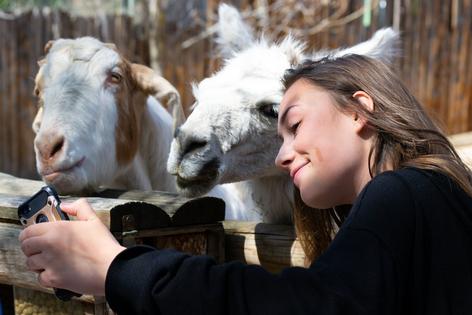Unlocking Wild Possibilities: An Education Guide To Working At The Zoo!
Published in EDU Advice
If you've ever marveled at the majesty of lions, been captivated by the playfulness of monkeys, or felt a deep connection to the natural world, a career working at a zoo might be your calling. A zoo offers more than just an opportunity to work with animals; it's a place where education, conservation, and care come together. Going back to school to acquire the necessary knowledge and skills can make this dream a reality. Here's how you can embark on this exciting journey:1. Identify Your Interests and Strengths: Zoos offer a wide array of career opportunities, from zookeeping and animal training to veterinary care and education. Knowing what area you want to focus on will guide your educational choices. Do you have a passion for hands-on animal care, or are you more interested in teaching others about wildlife conservation?2. Pursue Relevant Education: Depending on your chosen path, various educational options are available:Zookeeping and Animal Training: Many zookeepers hold degrees in biology, animal science, or zoology. Some institutions even offer specialized programs in zoo and aquarium science.
Veterinary Care: Becoming a veterinary technician or veterinarian requires specific education, such as an associate's degree in veterinary technology or a Doctor of Veterinary Medicine (DVM) degree.
Education and Outreach: A degree in education, environmental science, or related fields can prepare you to educate visitors about wildlife and conservation.
3. Gain Practical Experience: Volunteering or interning at a zoo, wildlife rehabilitation center, or animal sanctuary provides hands-on experience and builds valuable connections in the field. This experience can be crucial in landing a paid position later on.
4. Obtain Certifications if Needed: Some roles may require additional certifications. For example, animal trainers might pursue professional training certifications, while veterinary technicians often need to pass a licensing exam.
5. Embrace Lifelong Learning: Zoo professionals must keep abreast of the latest developments in animal care, conservation, and educational methodologies. Participating in workshops, conferences, and continuing education ensures you stay up-to-date and thrive in your career.
A career at a zoo is as rewarding as it is demanding, requiring a dedication to both the wellbeing of animals and the education of the public about the natural world. By aligning your educational pursuits with your career goals, you'll set yourself on the path to a fulfilling role that connects you to the wild heart of our planet.
Whether it's the hands-on care of exotic creatures or the inspiring work of teaching the next generation about biodiversity and conservation, a zoo career offers the chance to make a tangible difference. Going back to school to pursue this path is an investment in a future filled with wild possibilities and the joy of connecting people to the animal kingdom.
This article was generated by Open AI with human guidance and editing along the way.







Comments